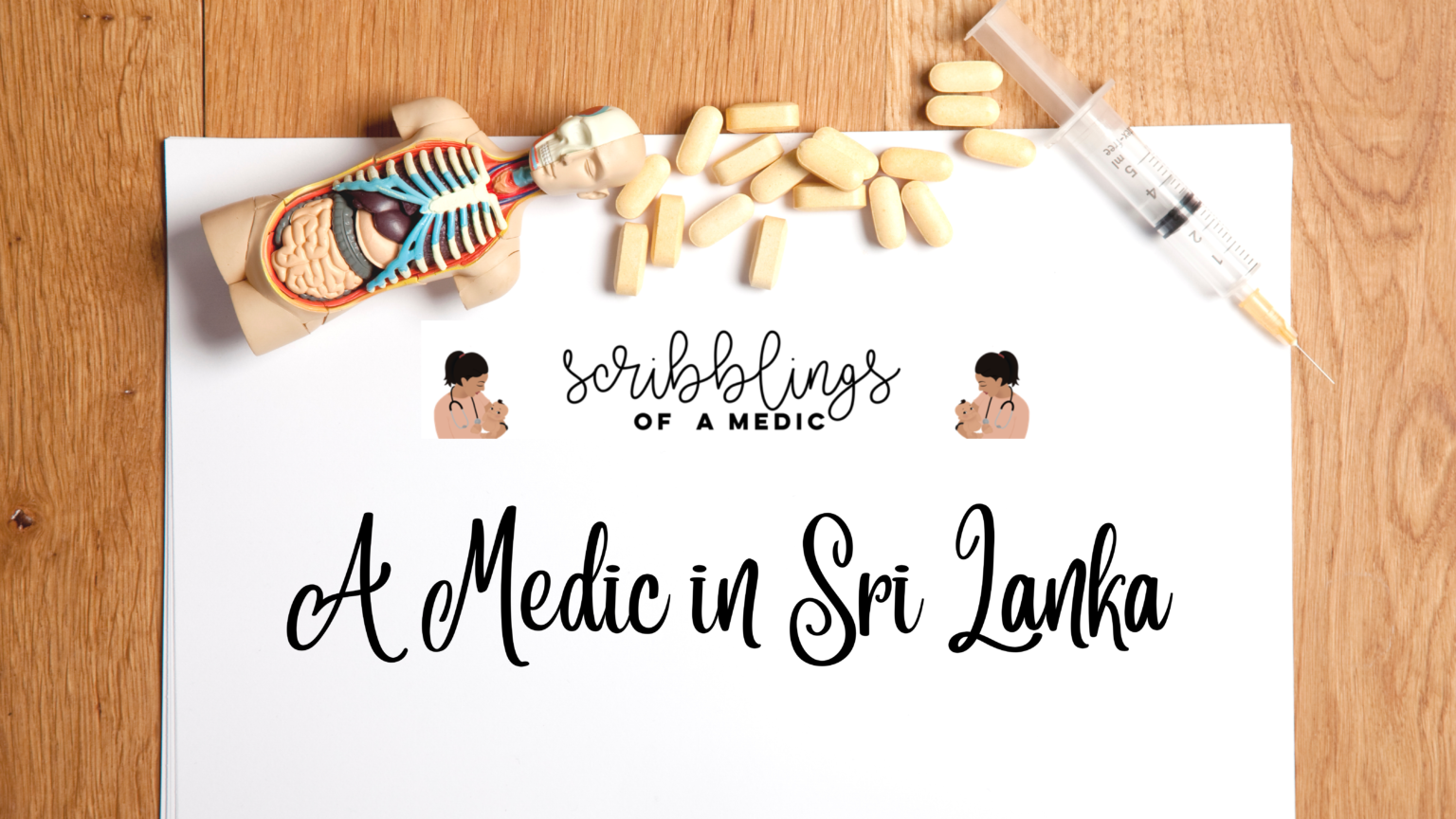Moving back to Sri Lanka, I had very little knowledge about how the medical system works here. Still to this day I’m not sure most Sri Lankan doctors understand how the system works here. There is no magical diagram to move up the ranks or exit at a particular level. So starting my internship I was more than a little puzzled.
How do you interact with fellow healthcare workers? How do you treat unruly patients? Should you teach medical students? How much of work are you actually supposed to do as a junior doctor? How on earth do you find a patient’s medical records amongst that huge pile of paper?
So many questions, not many answers. I mean I’ve obviously done the work experience stints at some hospitals in Sri Lanka, but yet never truly got integrated into the local system. During internship, I truly learnt a lot – not just medically, but how different the work environment is in Sri Lanka. Fellow interns can be challenging, nurses can be extra challenging and don’t even get me started on the patients. Here’s my top 5 lessons learnt whilst on internship and I’m sharing them because maybe it would come in useful for future interns.
1. Don’t give out your phone number to patients
When you work in a small town, everybody knows everybody. If you give your phone number to one patient then every time someone they know comes to hospital you will get a phone call. This anyway should be a no brainer no matter how sorry you feel for the patient. When you need to check up on patients that are transferred, e.t.c, always contact them through the hospital phone system because that way they cannot have direct access to you. One of my colleagues learnt this the hard way when a patient kept hounding him to check on other patients which obviously compromises patient confidentiality and keeps interrupting with work. Save yourself the hassle and keep your number to yourself!
2. Don’t discharge patients just because they beg – if you have a gut feeling to keep them, keep them.
This is something I constantly face when doing my rounds in the postnatal ward. Mothers are often frustrated with staying in hospital with their new babies and are eager to get back home. This is obviously completely normal and to be expected, but you really cannot discharge a mother at the risk of harm occurring to the baby – e.g. if she has reduced breast milk putting the child at risk of dehydration and weight loss. I’ve had mothers who have begged me to be discharged and it is a very difficult/uncomfortable situation to be in. Remember to always listen to your gut though – if there is even the mildest risk to the patient or in my case the baby, don’t discharge the patient. As a doctor, always remember that you should never put the patient at risk. Adult patients can obviously leave against medical advice (LAMA) unless intoxicated or there is a risk of head injury. Babies however we generally don’t let the parents take them LAMA.
3. Find your voice and hold your ground – you don’t need to take sh** from anyone.
As a new doctor, you will be at the bottom of the food chain possibly just above a medical student. So nurses may not listen to you, you will get scolded from your seniors and your consultants may not pay any attention to you. I have had nurses who have blatantly gone against my requests and those that made fun of my sinhalese speaking skills. I didn’t care and would still be nice, but not be taken advantage of. If they started going on with their own management I would simple write it down in the BHT – something that all healthcare workers are scared of. Remember to hold your ground. Find your voice. That doesn’t mean to be cocky and overpower everyone else’s opinion. But definitely be decisive, more often than not you will be the only doctor around. Gain everyone’s respect by being a competent, responsible and kind doctor. Don’t be a pushover, make a sensible decision and hold your ground.
4. Know your lane and stay in it – even if you think you’re being helpful.
As a medical student all you ever want to do is fit in the ward. You will go above and beyond to be helpful; helping nurses, minor staff, basically anyone and everyone. Whilst this is definitely how it should be as a medical student, the tables turn once you are a doctor. Some nurses have a lot of pride and don’t want to ask for any help so they would rather struggle a million times than ask for help. Remember to let them be. If they want help they would ask. It’s a simple request – stick to it.
5. Keep your head down, don’t feel the need to over share.
This is probably the best advice I ever received and I got it from one of my lecturers. Not everybody comes from the same background and not everyone is going to understand your story. Keep it professional as much as possible! Of course build friendships, but don’t feel the need to over share with your work colleagues until you are 100% sure that you have built a solid friendship. Even though I am lucky to have never had to go through it, jealousy and sabotage do occur in the real world and in almost any workplace. So keep your head down and do your work!
These are 5 lessons I learnt during my internship and will probably carry with me throughout the rest of my career. As your career in medicine evolves, you will learn more than just medicine. Dealing with colleagues and patients takes a lot of skill, a skill that will be mastered with experience. First things first though, get through your internship! Everyone learns different lessons so let me know of any other lessons you’ve learnt along the way!





